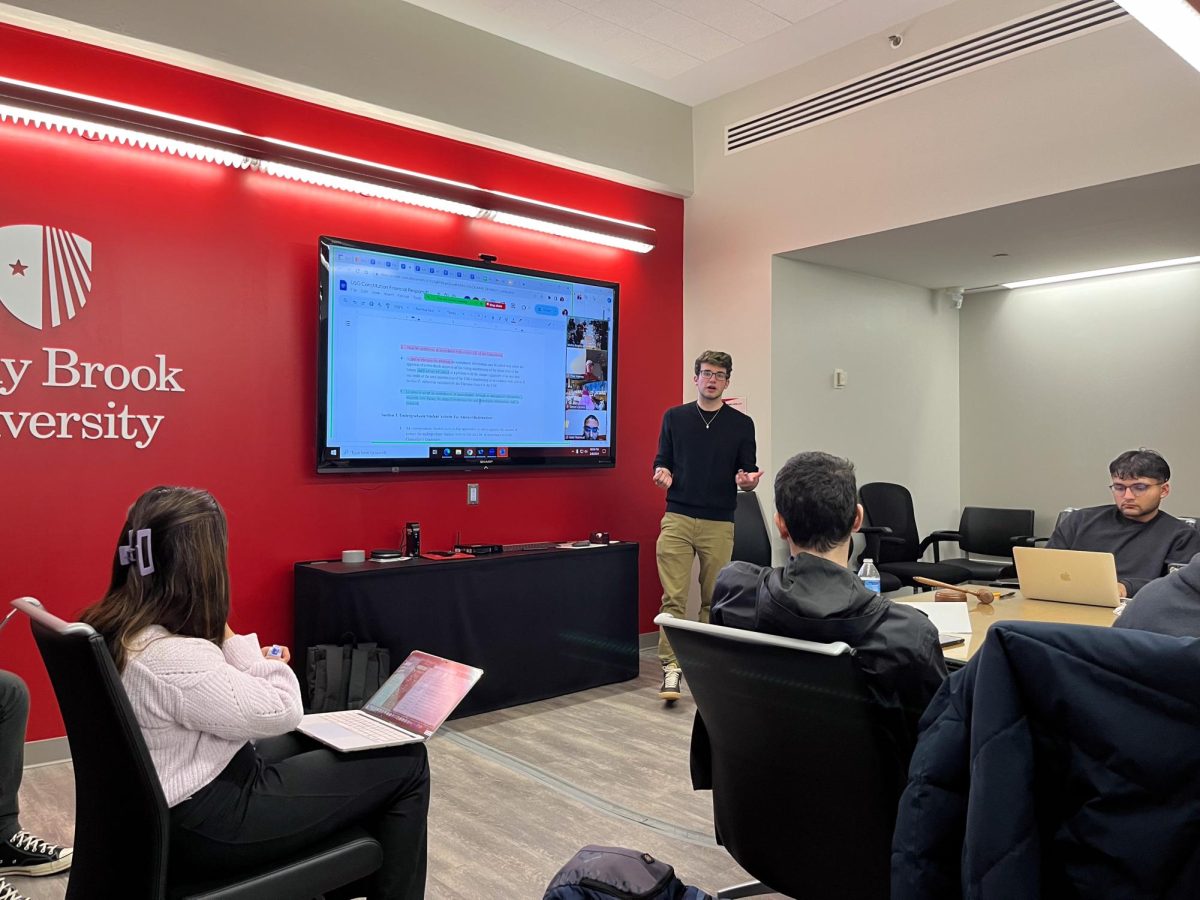After suffering some of the largest budget cuts in its recent history, Stony Brook University started to implement shared services, a decisive change in the way it handles administrative services within departments. This controversial idea is meant to keep the same services people are used to, but with fewer personnel.
The art and theater departments in the College of Arts and Sciences, which has become a test case for shared services, experienced cuts that accumulated to about 15 percent, or $10 million, of a $70 million budget.
“Year after year, the budget of the university has been cut, and that has trickled down to the College of Arts and Sciences,” said Axel Drees, the associate dean for operations and budgets for the College of Arts and Sciences. “Shared services are now a way to make up for this number of staff being lost.”
With a low employee retention rate and no opportunities to hire replacements, the fine arts became the perfect pilot program because there was an actual problem to be solved in terms of services.
The largest change that students will have to face will be that the person they usually deal with for scheduling and other administrative purposes will sit in a different office in the Staller Center.
But some students worry that some of those offices may be empty.
“Right now, the art department and the music department both have a secretary. If the services are consolidated so we only need one secretary, that’s someone losing their job,” said Mike Carley, a Stony Brook University student who has spoken out against shared services. He, along with 241 others, signed a petition against shared services.
Some staff members share Carley’s worries.
According to Drees, the art and theatre departments have already seen a drop in staff over the past few years due to budget cuts and hiring freezes. A decline they have not been able to fix.
John Lutterbie, the chair of both the art and theatre departments, is a supporter of shared services and said that he has seen it work successfully in his departments. However, he said the change is an ongoing process and that his staff members are learning what works and what doesn’t each day.
“The experience we had combining theatre and art has been very positive and we hope that people can see this and realize that it can actually work,” Lutterbie said. “It can form stronger alliances among staff, which makes them happier.”
Lutterbie’s appointment in itself is an example of shared services, and it will last for the next three years.
According to Nancy Squires, the dean of the College of Arts and Sciences, the main issue is that students know their advisers will not be leaving. In departments with large numbers of undergraduates, there are staff members that specialize in advising. Squires said that not all departments have this and that under shared services the opportunity to spread this practice to other smaller departments would increase.
“One of the most important issues is to preserve job security and not to have to let people go,” Drees said. “We are trying to deal with the attrition that has already happened, and in the fine arts, it has already happened.”
The hope is that most of this will occur naturally. Since the departments have been operating on a reduced budget for a couple of years, no staff should have to be let go. To date, none have. There have been two voluntary separation packages offered, allowing faculty early retirement.
Staff members from the art and theatre departments were contacted for this article, but none responded.
According to Drees, one has to look at each department and judge the number of faculty and students one staff member can deal with. Based on that, one can find the number of staff one needs for that department. However, due to the vast differences between the numbers of undergraduates enrolled in the many departments within the College of Arts and Sciences, that number does not always match up within department boundaries, which means that some departments might have too few staff members for the amount of students enrolled.
The idea was that departments that have some commonalities, like the fine arts, would have some crossover with services due to similarities in function and location among its subdivisions.
A common source of confusion that Drees said he has come across is that shared services will merge departments and academics, which he has said is not the case.
“While there is joined administrative support for the department of arts and the department of theatre arts, both departments still exist, and so do all the programs in these departments,” he said. “It is more how you provide the academic services to those programs that has changed.”
But the issue still stands that eventually some departments might have faculties that are too large. According to Drees, the hope is that these departments will be able to find other jobs on campus for staff they may have to lay off in those cases.
According to the petition Carley signed, “This pooling will result in a loss of specialized student support,” that students are used to and comfortable with, while staff will be “taken out of their context of expertise.”
According to Drees, though some students might experience great advising in their department, that is not the case for all departments. The hope of the College of Arts and Sciences is that the pooling of staff will actually have a beneficial outcome.
“Through these shared services, the hope is that we can also share best practices between different units and actually make the service better to the students,” Drees said. “The other hope is that we can provide new services at some point.”
For now, the fine arts is the only area in which shared services has been implemented, but plans exist for shared services to be extended to the humanities and social and behavioral sciences as well.













